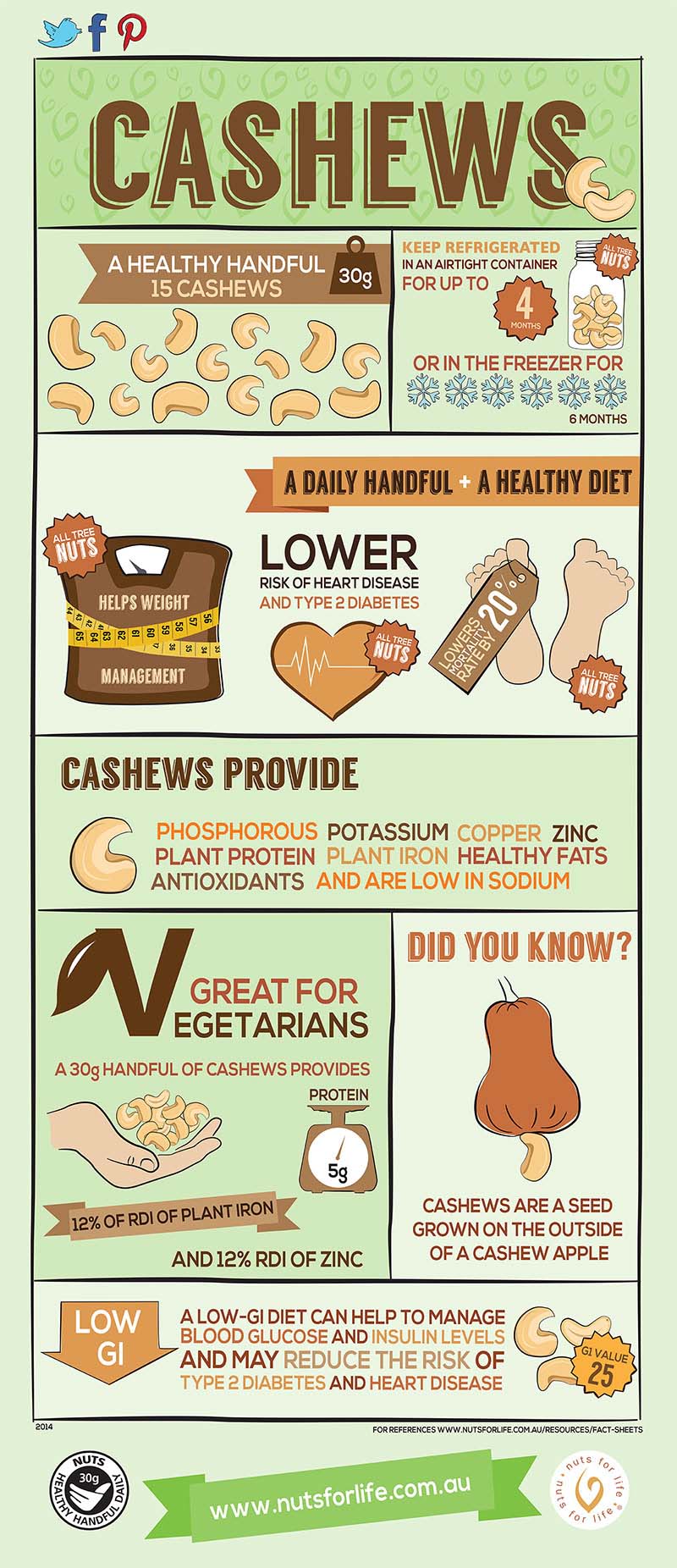Cashews are nuts that are buttery, while also sweet and salty, making them one of the tastiest nuts to eat. This nut is a great snack on its own but can also be used to dress up meals and top off desserts. Cashews are low in fiber, but full of other essential vitamins and nutrients for people. But can dogs eat cashews, or are cashews bad for dogs?
If you've been wondering, “can I give my dog cashews,” the answer is YES – but only in very small amounts. While cashews may not be as dangerous to dogs as some other nuts like macadamia nuts, moderation is still key and only a limited amount can be given.
In this article, we'll take a closer look at the cashew nut, can dogs have cashews and how much, are cashews bad for dogs and why, and are cashews good for dogs and what are the benefits dogs get from consuming this nut.
ALSO READ: Can Dogs Eat Peanuts or Are Peanuts Bad for Dogs?
What are cashews?
Cashew nuts, grown on cashew nut trees native to subtropical climates, are tasty and nutritious. They are a staple in many international foods, including vegan dishes, and Indian and South Asian foods. Cashews offer a variety of nutritional benefits from vital minerals and vitamins to lowering the risk for cardiovascular disease.
This is what cashews look like:

They are one of the tastiest nuts out there and a very popular choice in America. But can dogs eat cashews and are cashews good for dogs so that they can reap some of the benefits? Similarly, are cashews bad for dogs and what are the dangers? Let's see.
RELATED: Can Dogs Have Jell-O?
Cashews 101 for Dogs
Can Dogs Eat Cashews?
 So, can dogs eat cashews and are cashews safe for dogs to consume? Technically, yes – your dog can eat cashews but only in very limited amounts. Cashews are non toxic to dogs, however, moderation is a must for cashews and dogs, and some important guidelines should be followed.
So, can dogs eat cashews and are cashews safe for dogs to consume? Technically, yes – your dog can eat cashews but only in very limited amounts. Cashews are non toxic to dogs, however, moderation is a must for cashews and dogs, and some important guidelines should be followed.
It's true that cashews may provide some of the same nutritional benefits to dogs as they do people, but they are still high in fats and can cause health concerns if fed in large quantities. Additionally, be sure only to feed your dog cashews that are roasted, not ones that are salted, sugared, or seasoned as those can cause health concerns.
There is some science on the health benefits of cashews. Here's what we know:
There isn't as much research on the cashew nut as there is available on nuts like almonds, unfortunately. But it's theorized that cashews are generally good for people in moderate amounts. When it comes to dogs, remember that some canines can be allergic to cashews, so caution must be taken if you feed some of these nuts to your dog.
If you feed your dog cashews, always be on the lookout for allergic reactions.
In general, can dogs eat cashews without any issues if given in moderation? Are cashews bad for dogs in some circumstance? And are cashews good for dogs and what would be the benefit of feeding this nut to your canine companion? Here's what you should know.
4 Benefits of Cashews for Dogs
 1. Cashews contain antioxidants that ease and prevent degenerative conditions.
1. Cashews contain antioxidants that ease and prevent degenerative conditions.
The antioxidants in cashews can help protect dogs from the aging process and ease the pain of conditions like arthritis and hip dysplasia through their anti-inflammatory properties. The risk of cancer and cardiovascular disease may be significantly reduced because of antioxidants as well.
2. The amount of omega-3 fatty acids in cashews promotes healthy skin and coat.
The omega-3 fatty acids in cashews will help restore dry, flaky skin or brittle fur. Thick, healthy coats and healthy skin are the results of the addition of these fatty acids to a dog’s diet.
3. The super-vitamin K can be found in cashews.
Vitamin K, considered a super-vitamin for canines and humans, is a fat-solvent vitamin essential to a healthy body. This vitamin assists calcium in strengthening dogs’ bones and teeth. In this way, it can help prevent osteoporosis, osteoarthritis, and some blood-related diseases.
Additionally, Vitamin K has been found to reduce the risk of heart disease and cancers, such as liver and prostate cancers.
4. Cashews have minerals critical to healthy growth and body functions.
Cashews contain many minerals that are helpful to essential body functions, such as:
- Calcium and phosphorous for essential functions such as blood coagulation, bone formation, and nerve impulse transmission.
- Copper for red blood cell creation, the formation of collagen, and absorption of iron.
- Magnesium for absorption of vitamins and calcium, development of strong bones, and healthy eyes and skin.
- Iron for the creation of hemoglobin and enzyme development.
RELATED: Lentils for Dogs – Can They Eat Them?
6 Potential Side Effects of Cashews for Dogs
 1. The high fat in cashews can lead to obesity and pancreatitis.
1. The high fat in cashews can lead to obesity and pancreatitis.
Cashews have an incredibly high amount of fat, and dogs who are fed cashews regularly run the risk of gaining weight and becoming obese with time. Pancreatitis, a severe inflammation of the pancreas, may also develop and put a dog’s life in danger.
2. Too many cashews may cause gastrointestinal distress.
As with any new food, too much too soon can lead to stomach upset in dogs. Constipation, stomach ache, diarrhea, and vomiting may occur if a dog eats too many cashews at one time.
3. Cashews may cause an allergic reaction in some dogs.
Nut allergies in dogs do not happen at the same rate as in humans, but they can occur on occasion. Dogs who eat cashews repeatedly should be monitored very carefully for symptoms that may indicate an allergy, such as chronic ear infections, face rubbing, coughing, paw biting, skin infections, hives, or other skin rashes.
4. Salted cashews can lead to salt toxicity.
The majority of cashews sold commercially are salted, and ingestion of too many of them can result in excess salt in a dog’s body. This sodium toxicity can lead to lethargy, depression, vocalization, and eventually progresses to seizures, coma, and death if not diagnosed and treated quickly.
5. Regular consumption of cashews may cause bladder stones.
Cashews are high in oxalates, an organic acid that aids in the formation of bladder stones. Some breeds of dogs are highly susceptible to the development of the stones, so every effort should be made to prevent these dogs from consuming cashews.
6. Cashews with mold can cause liver failure.
Any cashews fed to dogs should be thoroughly inspected first to be sure no mold is on them. It is possible that mold on cashews may contain aflatoxins, a toxin that can result in liver failure in canines.
Summary
Can Dogs Eat Cashews?
In conclusion, can dogs eat cashews or are cashews bad for dogs? Cashews are non-toxic to dogs and yes, dogs can eat cashews, and the nuts do have nutritional benefits, but they must be fed in very limited quantity.
It’s also important that the cashews be roasted and not salted or covered in any other additives. Caution should be used if you decide to feed cashews to your dog because of the multitude of health issues that can come from the ingestion of these nuts.
READ NEXT: Why Is Chocolate Bad for Dogs?














